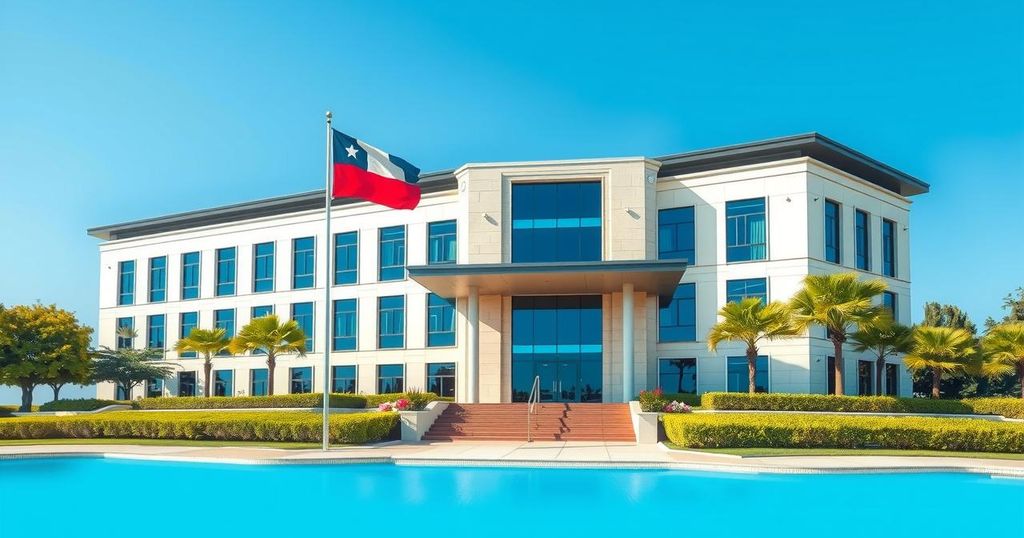Germany Reopens Embassy in Syria Following Assad’s Ouster
Germany has reopened its embassy in Syria after 13 years, post-Assad’s fall. Foreign Minister Annalena Baerbock’s visit focused on managing extremist groups and extending humanitarian aid, with Germany pledging €300 million for reconstruction efforts. The move indicates warming relations between Berlin and Damascus amidst ongoing security challenges.
Germany has reopened its embassy in Syria after a thirteen-year closure that began in 2012, amid the civil war. This reopening occurred more than three months following the ousting of former President Bashar Assad and was officially inaugurated by German Foreign Minister Annalena Baerbock, who is currently undertaking her second visit to Syria post-Assad’s regime collapse. While a few diplomats will resume duties in Damascus, consular operations such as visa issuance will continue from Beirut, Lebanon.
This significant diplomatic move indicates a thawing in relations between Berlin and Damascus, which is currently grappling with humanitarian and security challenges as it seeks to rebuild after the Assad regime’s downfall. Notably, Germany is home to over one million Syrians, many of whom left during the extensive civil conflict.
During her visit, Baerbock engaged with Syria’s interim leadership, emphasizing the necessity to control and hold accountable extremist groups responsible for recent sectarian violence. She expressed, “It is imperative that extremist groups are brought under control and those responsible for crimes are held accountable,” following discussions with interim President Ahmed al-Sharaa. Additionally, her itinerary included meetings with representatives from civil society organizations.
The backdrop to Baerbock’s visit includes recent violent confrontations between Assad loyalists and opposing government forces in northwestern Syria that resulted in many civilian casualties. Reports indicate that over 1,500 individuals, predominantly civilians and Alawite community members, have lost their lives in this unrest, according to the Syrian Observatory for Human Rights.
Prior to departing for Syria, Baerbock condemned the targeted killings of civilians, labeling these actions as a “terrible crime” that undermines trust among the populace. She called on the transitional government to take responsibility for the conduct of groups within its ranks.
In her remarks, Baerbock reiterated Germany’s dedication to providing ongoing humanitarian support to Syria and indicated a potential easing of sanctions under specific conditions. She stated, “A new political beginning between Europe and Syria, between Germany and Syria, is possible,” contingent upon clear commitments to uphold freedom, security, and equal opportunities for all Syrians, irrespective of gender, ethnicity, or religion. Notably, Germany has recently pledged €300 million ($325 million) in reconstruction aid during a donor conference that raised a collective €5.8 billion in commitments. Several other EU nations have also resumed diplomatic activities in Syria, with Italy and Spain re-establishing their embassies prior to and after Assad’s fall, respectively.
Germany’s reopening of its embassy in Syria signifies a progressive step toward restoring diplomatic relations. Foreign Minister Annalena Baerbock’s visit included calls for accountability regarding extremist violence and emphasized continued humanitarian support. Moreover, Germany’s financial aid commitment illustrates its engagement in the reconstruction of Syria, stressing the need for a new political relationship based on principles of freedom and equality for all Syrians.
Original Source: www.dw.com




Post Comment